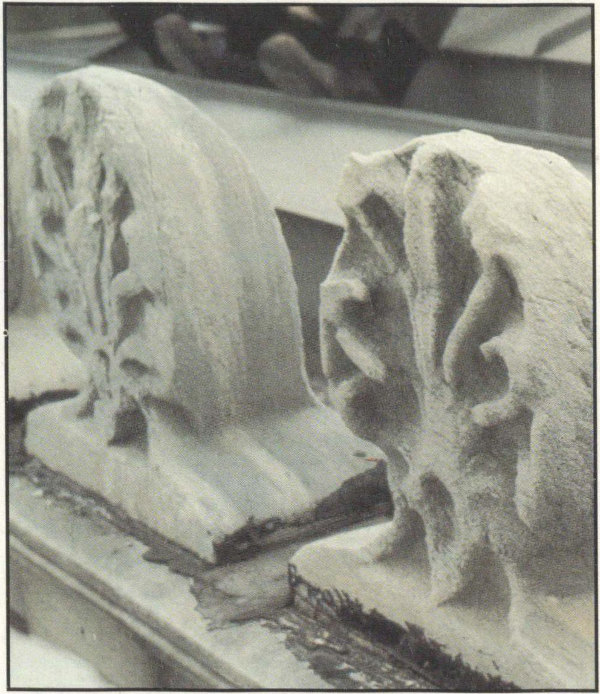It causes lots of damage everytime.
Why are structures that contain marble damaged by acid rain.
Acid rain rain is called acid rain only if it has more acid than normal.
How does acid precipitation affect marble and limestone buildings.
Study the causes effects along with a few examples and understand the prevention measures.
Trees that are located in mountainous regions at higher elevations such as spruce or fir trees are at greater risk because they are exposed to acidic clouds and fog which contain greater amounts of acid than rain or snow.
Also know about the adverse effects of acid rain on india s pride the taj mahal.
Structures made of limestone and marble are.
Although specialized non acidic products can remove surface rust on marble or limestone the indwelling rust caused by constant induction of humidity mostly from the backside of the stone cannot be removed.
The most notable effects occur on marble and limestone which are common building materials found in many historic structures monuments and gravestones.
When sulfurous sulfuric and nitric acids in polluted air and rain react with the calcite in marble and limestone the calcite dissolves.
The main causes of acid rain are gases called sulfur dioxide so2 and nitrogen oxides nox.
In exposed areas of buildings and statues we see roughened surfaces removal of material and loss of carved details.
Acid rain was always a serious problem.
Go through this article to know what is acid rain and how acid rain occurs.
But human intervention and releasing of the massive amount of toxic into the atmosphere.
Regular rainfall contains weak acid.
Acid rain also causes aluminum to be released into the soil which makes it difficult for trees to take up water.
What man made structures is most susceptible to damage by acid precipitation.
It has become a serious topic around the globe in the 21st century.
Structures made of limestone and marble are susceptible to damage by acid precipitation.
On non acid resistant stones like limestone or marble rust can be a non repairable problem.
Stone surface material may be lost all over or only in spots that are more reactive.
When sulfurous sulfuric and nitric acids in polluted air react with the calcite in marble and limestone the calcite dissolves.
It could take hundreds of year to damage any monument.
Visit byju s to learn more about it.
Structures made of iron and copper materials are also susceptible.
Acid rain is a huge contributor to the weathering of limestone structures.
The components of acid rain such as sulfuric acid nitric acid and carbonic acid react severely with calcium carbonates which is the key component of marble.

